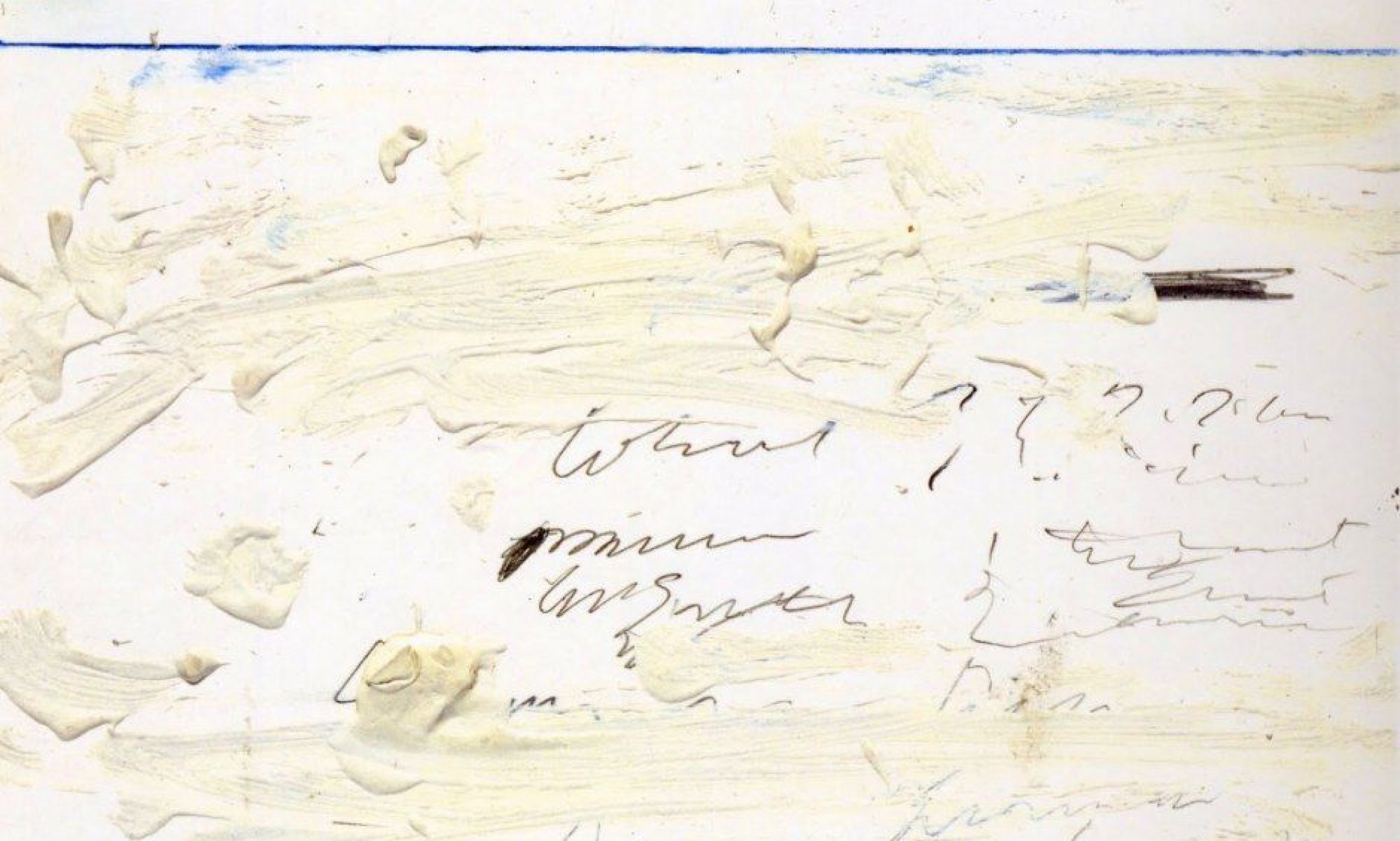A few notes on yesterday, with Aynsley Vandenbroucke—I hope it felt as good to everybody as it did to me, to get under the desks, spin around the perimeter, twist sidewise in the pedagogical chair, and so on. Just loosening up the body and relaxing, for a spell, the border (often strictly controlled) between moving and thinking.
You may have noticed, as we went along, that Aynsley was giving names to a variety of different qualities of movement, and proposing them as terms that could transfer to reading (or writing) poetry. (“Transfer”: that is a direct translation of the Greek “metaphor,” which means to carry across.) Her vocabulary was borrowed from her interest in Laban notation, a system for transcribing dance that originated in Germany in the early twentieth century and is still widely taught today. She talked about the center of the body (does a poem have a center of gravity?), about pace, and also a set of oppositions that define the Laban attitude to dynamic movement:
Space: Direct / Indirect
Weight: Strong / Light
Time: Sudden / Sustained
Flow: Bound / Free
Those are all very suggestive words for reading a poem: is its movement, for example, bound or free? The trick, as a literary critic, is then to be able to say in poetry’s native vocabulary what “bound-ness” consists in and how it is expressed. (By short, end-stopped lines, for example? By tight argument?—already I am using a metaphor there, “tight,” and what do I mean by that? By a concentration of heavy stresses?) But you might never have thought of that boundedness if you had not tried to imagine the poem as moving, or even (as we did) tried to move (to) it, dance (to) it.
The various performances of the Howe poem were amazing. There was a lot of attention to form, and properly so—it is an intricate artifact, fascinating in its shape, withholding in its language, which is cut up and turned around and variously collaged. I felt increasingly alive to its passages of concision and confusion as the four performances proceeded. It would be very interesting to do the same thing with, for example, the Alexander Pope passage on the day’s handout—how would we dance his measured, witty arguments? At all events I thought the last discussion about “reading” was really interesting. Not quite the right word, mused Avaneque—but why not? And what word should we use?
